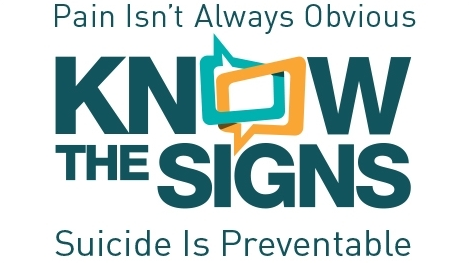One of the major concerns during the Coronavirus Pandemic has been its impact on behavioral health issues. And there is little doubt that the scariest issue, sometimes whispered and sometimes spoken out loud, has been its possible impact on the suicide rate.
Although some counties in Illinois have reported an increase in suicides thus far in 2020 as compared to 2019, Will County’s numbers have actually dropped. The Coroner’s Office has stated that through August of 2019, Will County had 50 suicides (with a total of 68 for the year). Through August of 2020, there was a total of 42 suicides (with rulings pending on two other possible cases).
With September having been Suicide Prevention Awareness Month, WCHD (Will County Health Department) Behavioral Health Director Dr. Joseph Troiani says a lot of initiatives have worked since the Coronavirus Pandemic began last March.
“Awareness overall in our county has been up. The governor announced the creation of the Call4Calm hotline in April, where residents can simply text TALK or HABLAR to 552020, and receive a call from someone within their region. We have responded to over 50 requests from people that just wanted someone to talk to. Additionally, we were able to partner Call4Calm with the Crisis Line of Will County, with their personnel also able to respond. It gave people a second available outlet, and allowed us to take even more of a pro-active approach.”
But despite all this, Dr. Troiani knows there is a long way to go in getting the county safely through the pandemic. “We know there has been a much higher state of anxiety in these times. We are in week 27 of the pandemic, and people really have no sense of any kind of end date. The realization for quite some time has been this will not end quickly.”
Dr. Troiani says that, as is now well known, the pandemic has taken an extreme toll on families, with issues ranging from parents losing jobs to kids being forced to attend school remotely at home. This is where “awareness” of one’s behavioral health state can be extremely challenging. In other words: Is someone going through difficulty due to the increased stress and different routines, or is it something that could be more serious?
Although the answer can be hard to tell in these times of higher anxiety, Dr. Troiani says there are still ways to tell when evaluating your kids, your spouse, or even yourself. “From the current state of things, you can still look for sudden increased self-isolation, downturn in mood, lack of engagement with the family, or just being verbally despondent.
“Keys that can trigger suicide continue to be hopelessness, helplessness, or pure exhaustion and feeling they have no options. If you hear someone saying ‘There’s no way out,’ or ‘I really don’t know what to do,’ you really need to take action.
Dr. Troiani emphasizes that the best way to take action with someone who seems troubled is to first and foremost, TALK to them. “There is still a myth out there that talking to someone about their extreme trouble or asking them about it will drive them to suicide. Providing dialogue can actually lead to a reaction of relief. It can alleviate the problem if a family member or friend simply says to them, ‘I’m really concerned about you. Do you feel trapped? Are you thinking of hurting yourself?’”
The Will County Health Department recommends that in addition to initiating dialogue, do not hesitate to make a phone call for help. As mentioned, Call4Calm can be reached by texting TALK or HABLAR to 552020, or dialing 1-217-545-5100 if you do not have a cell phone with texting capabilities.
The Crisis Line of Will County can be reached at 815-485-7366, and the Will County Health Department Behavioral Health Division can be reached at 815-727-8521.

